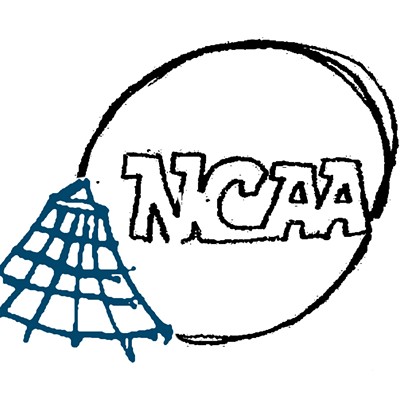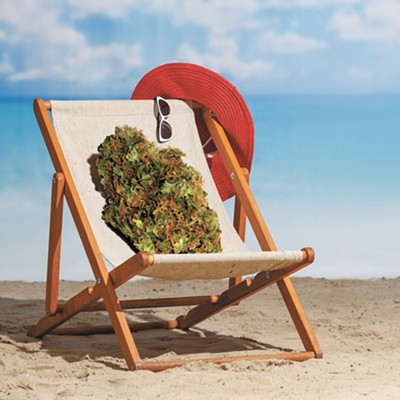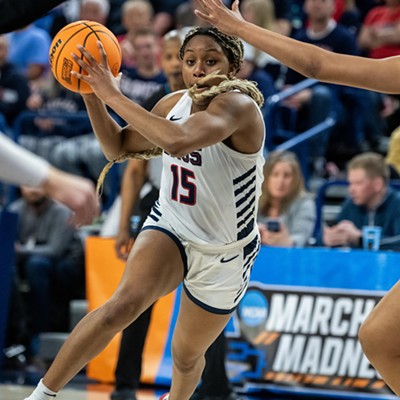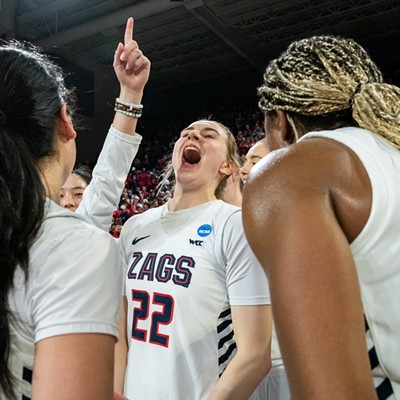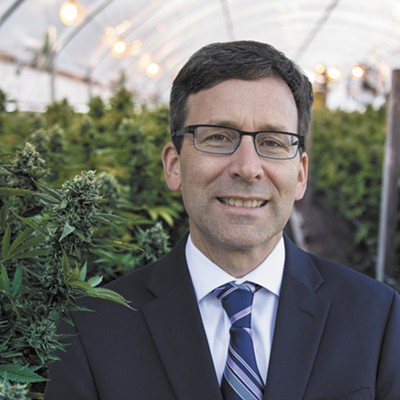As marijuana and associated products continue their push into the legal mainstream of American life, conflicts between what is and what is not acceptable are popping up in some unexpected places. This week, with college football kicking off a new season, we can turn to the gridiron to watch how past and present views on marijuana are still butting heads.
Our big, local college football team, the Washington State Cougars, play in the Pac-12 Conference. Of the 12 teams in that league, nine are located in states with legal recreational marijuana. At a press conference during last month's Pac-12 media day, conference commissioner Larry Scott was asked about marijuana policy.
"We do not have a unified position across the board given the diversity of state laws on that topic and our own campuses' approaches to those things," Scott said. "So it's really left campus-by-campus, state-by-state basis. There's not a conference policy around that."
While there may not be a conference-wide policy, there is a national one which completely undercuts the sentiment in Scott's quote. The NCAA, which regulates college athletics nationally, lists cannabinoids as one of the nine substances student athletes are prohibited from using, legal or not.
So, if you're a college football player of legal age, in a state with legal recreational marijuana, you aren't allowed to relax with a joint during your down time. You're also not allowed to use CBD balm to treat the aches and pains associated with playing football.
We still don't have much scientific data to back up CBD's effectiveness as a method of pain relief, but the anecdotal evidence supporting it is overwhelming. Where there is medically sound research supporting cannabinoids, specifically in treating epilepsy, the NCAA is turning a blind eye as well.
In the spring of 2018, C.J. Harris was preparing to graduate from high school in Georgia and had an offer to join the Auburn Tigers, a powerhouse college program. Harris has epilepsy, but his condition is under control thanks to cannabis oil. It's the only treatment that has proven effective for him, but it's also the reason why he's spending this season playing for Highland Community College instead of at the highest level of college athletics.
The Washington Post covered Harris' story last summer. It's been over a year, but the NCAA hasn't changed its outdated policy. Cannabinoids remained banned, Harris remains on the outside looking in, and those who are able to play are unable to turn to a group of products that grow more and more accepted with each passing day. ♦





